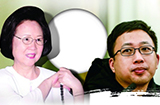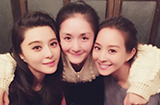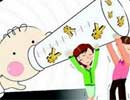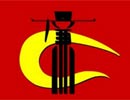五、結 語
真人秀電視節目已經成為世界范圍內的流行節目形式。它成為了一個開放平台,為普通人提供了大量展現自我的機會。如果足夠受歡迎並且足夠幸運,他們都能獲得一定程度的知名度並且逐步提升他們的社會地位。
真人秀電視節目能夠被視為一個聚集人群並產生社會連帶關系的“儀式空間”。真人秀電視節目中的排名系統是能夠用來區分“神聖”及“世俗”的工具,“神聖”的物體總是比“世俗”的物體擁有更高的排名。真人秀電視節目是一個允許人們從“普通人”轉變為“名人”的平台,其中包括“分離”、“邊界/閾限”與“重新整合”三個階段。真人秀電視節目是一個能將人們狀態轉變過程合理化且自然化的媒體機構。媒體被認為擁有重現社會現實並將人們帶至“社會中心”的“象征性/符號權力”。真人秀電視節目中名人的建構過程証實了媒體劃分社會分類的能力。之所以如此多的觀眾被電視真人秀節目吸引的原因也正是存在於他們能夠親眼見証“普通人”在媒體機構中逐步轉變成“名人”的過程。(作者系上海大學影視藝術技術學院新聞傳播學碩士研究生,主要從事傳播學研究。)
參考文獻:
[1] Durkheim, E.(1995)The Elementary Forms of Religious Life. tr. K. Fields, Glencoe: Free Press,215.
[2] Holmes, S.(2004)‘“All You’ve Got to Worry About is the Task, Having a Cup of Tea, And Doing a Bit of Sunbathing”: Approaching Celebrity in Big Brother’ in Holmes, S. & D. Jermyn (eds) Understanding Reality Television. London: Routledge.
[3] Carey,J.W.(2009)Communication as Culture. New York: Routledge.
[4] Kilborn, R. (1994)‘ “How Real Can You Get”: Recent Development in “ Reality” Television’, in European Journal of Communication .
[5] Andrejevic, M. (2004) Reality TV: The Work of Being Watched. Lanham, MD: Rowman & Littlefield,.
[6] Holmes, S.(2004) ‘ “All You’ve Got to Worry About is the Task, Having a Cup of Tea, And Doing a Bit of Sunbathing”: Approaching Celebrity in Big Brother’ in Holmes, S. & D. Jermyn (eds) Understanding Reality Television. London: Routledge.
[7] Murray, S. & L. Ouellette (2009) Reality TV: Remaking Television Culture. New York and London: New York University Press.
[8] Turner, G. (2004) Understanding Celebrity. London.
[9] Evans, J. & D. Hesmondhalgh (2005) Understanding Media: Inside Celebrity. New York: Open University
[10] Rojek, C. (2001) Celebrity. London: Reaktion.
[11] Bell, C. (1992) Ritual Theory, Ritual Practice. New York: Oxford University Press.
[12] Couldry,N.(2003)Media Rituals: A Critical Approach. London: Routledge.
[13] Bourdieu, P. (1990) ‘Rite of Institution’ in Language and Symbolic Power. Cambridge: Polity.
[14] Biressi, A. & H. Nunn.(2010)‘Celebrity, Social Mobility and The Future of Reality TV’ in Thornham, S, Bassett, C. & P. Marris(eds.) Media Studies:A Reader. 3rd ed. Edinburgh:Edinburgh University Press.
[15] Collins, S. (2008) ‘ Making the Most out of 15 Minutes: Reality TV’s Dispensable Celebrity’, Television and New Media 9(2).
[16] Couldry, N. (2000) The Place of Media Power. London: Routledge.
[17] Nichols, B (2010) ‘Reality TV and Social Perversion’ in Thornham, S, Bassett, C. & P. Marris (eds.) Media Studies: A Reader. 3rd ed. Edinburgh: Edinburgh University Press.
[18] Turner, G. (2006) ‘The Mass Production of Celebrity: “Celetoids”, Reality TV and the “Demotic Turn” ’ International Journal of Cultural Studies 9.
[19] Turner, V. (1974) Dramas, Fields and Metaphors. Cornell: Cornell University Press, chapter 6.
| 上一頁 |

 分享到人人
分享到人人 分享到QQ空間
分享到QQ空間











 恭喜你,發表成功!
恭喜你,發表成功!

 !
!





















